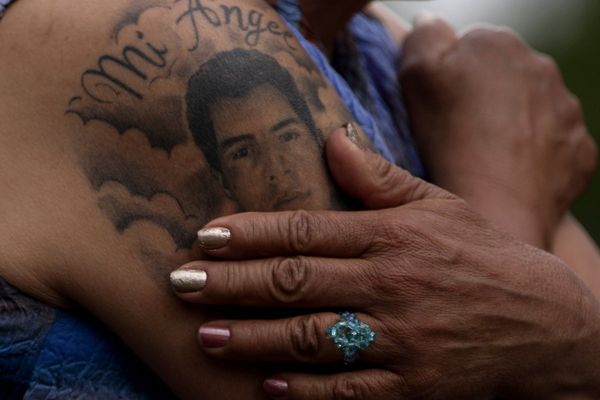
Dir: David Bruckner. Starring: Rebecca Hall, Sarah Goldberg, Evan Jonigkeit, Stacy Martin, Vondie Curtis-Hall. Cert 15, 110 mins
When it comes to convincing an audience that the terror is real, a horror film can try all the tricks in the book – dark shadows, a nerve-jangling soundtrack, some monstrous imp lunging at the screen – but none of it compares to the look of despair on an actor’s face. Especially if that actor is Rebecca Hall.
Whatever small contrivances or inconsistencies might dwell in The Night House’s story of a husband’s secrets and the home they dwell within, they melt away as soon as the camera cuts to the face of its star. There’s always been a certain decidedness to Hall’s presence, a slight languidness to the way she carries herself that suggests an easy confidence, but with the forthright stare of someone who would never suffer fools. And to see that face, the kind you might trust to lead you through an apocalypse, dissolve into childlike hopelessness – well, that’s scarier than any monster of the imagination.
That contrast was used to bracing effect back in 2016, when she played reporter Christine Chubbuck, the woman who became the first person to die by suicide on a live television broadcast, in Christine. It’s a topic she returns to in The Night House, the second feature by The Ritual director David Bruckner. Here, she plays Beth, a widow we first meet right after the funeral of her husband Owen (Evan Jonigkeit), the man who built their lakeside home, then took out the boat one day, carrying a gun that Beth “didn’t even know we owned”, and never returned.

As Beth soon realises, there are many things she didn’t know about her husband. How does she explain the odd photos of her (or is it her?) on his phone, the books about labyrinths scattered about the place, or the blueprint that seems to be a mirror image of their home? Screenwriters Ben Collins and Luke Piotrowski keep much of the mystery of The Night House at bay until its final moments. To experience the film is to share in Beth’s frustrations, which are only amplified by the spectral presence in her home – one that fills its rooms with deafening noise (combined with Ben Lovett’s relentless, oppressive score) or momentarily makes itself known through shadows and reflections. Is Owen trying to send a message from beyond the grave?
But what’s so striking about Beth, and specifically Hall’s performance, is that she never acts like the traditional, wilting horror widow. She’s furious at the phantom realm’s lack of communication skills. She yells out. She demands answers. The barrier between life and death grows into the chasm between the man Beth thought she loved and the one who’s now stepped out from the darkness. The Night House doesn’t just explore the horror of the unknown, but the horror of being robbed of what we thought we knew.







